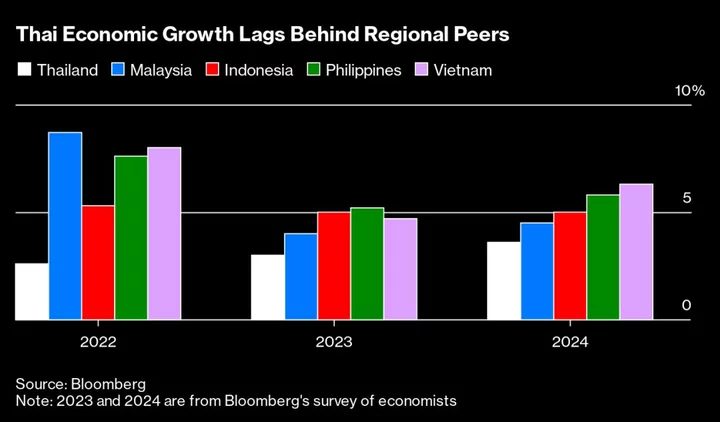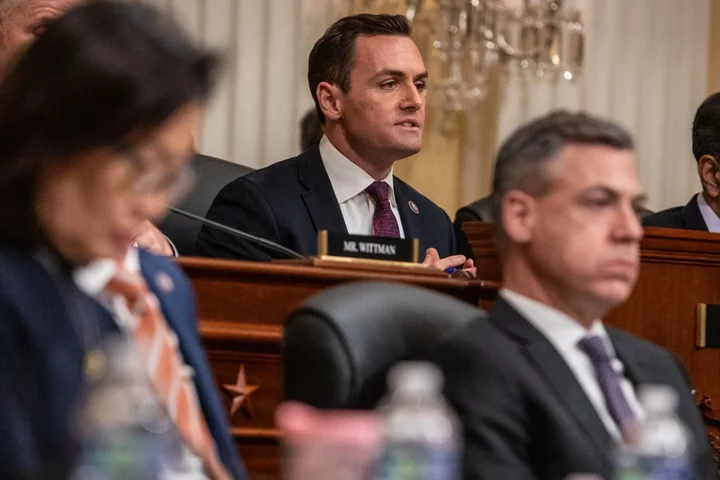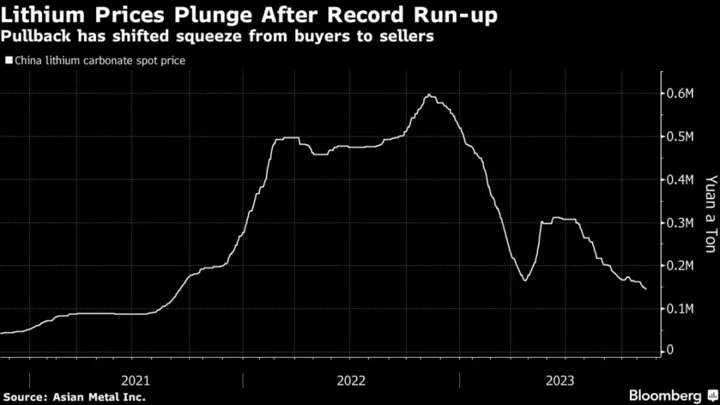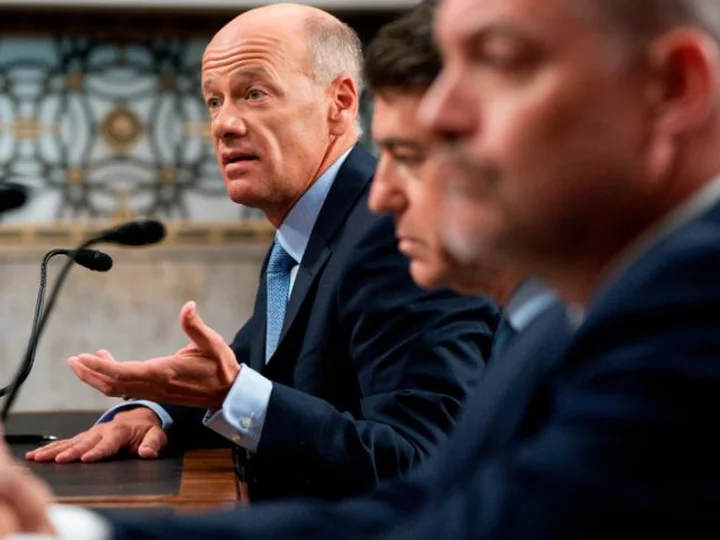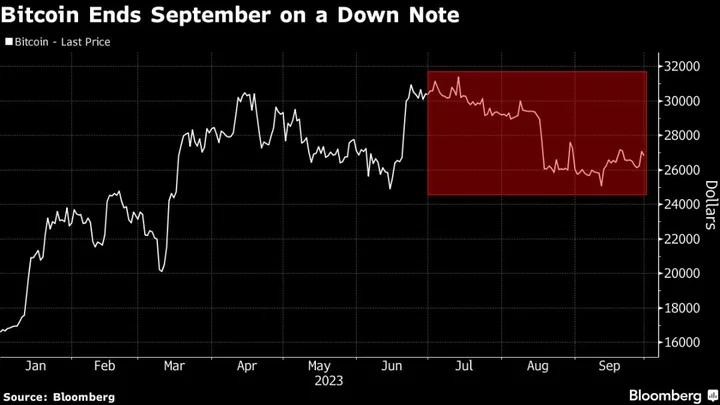A recession in the euro area is looking increasingly likely as the economic downturn persists in the final quarter of the year, private-sector activity surveys showed.
Meantime, the outlook for global trade got a boost this week as South Korea’s exports are likely to maintain momentum. Elsewhere in Asia, Chinese banks maintained their benchmark rates as they aim to boost liquidity and support lending.
Here are some of the charts that appeared on Bloomberg this week on the latest developments in the global economy:
Europe
S&P Global’s purchasing managers’ index was in contraction again in November, hitting 47.1. While that’s a bigger uptick than anticipated by economists, it marks the sixth consecutive month below the 50 level that marks expansion. Readings for both manufacturing and services showed a similar trend.
Germany will suspend a constitutional limit on net new borrowing for a fourth consecutive year after Chancellor Olaf Scholz’s government was forced into a radical budget overhaul by a ruling last week from the nation’s top court. The emergency move to lift the so-called “debt brake” will be part of a revised 2023 budget that Finance Minister Christian Lindner plans to present next week.
Asia
China may be done with rate cuts for now as policymakers turn to other means to support the economy and stabilize credit growth headed into the new year.
South Korea’s early trade data show exports are likely to maintain their growth momentum this month, continuing their rebound from a year-long slump and helping brighten the outlook for global commerce. Korea is a key global exporter, so its exports serve as a useful indicator of the health of the global economy.
Emerging Markets
Thailand’s economic growth unexpectedly slowed in the third quarter as manufacturing slumped on weak exports, supporting the case for the new government to proceed with its planned $14 billion cash handout program.
Chile’s economy expanded more than forecast in the third quarter led by the mining sector, as the central bank started easing monetary policy. Gross domestic product rose 0.6% in the July-September period from a year earlier.
In what will be a marathon month for interest-rate decisions in Africa, its biggest economies are set to keep interest rates higher for longer. Angola and Zambia hiked this week to temper stubborn inflation and stabilize the local currency, and Nigeria is expected to hike as well. South Africa maintained its current rate, and others including Morocco, Kenya and Ghana are seen doing the same.
US
Americans are increasingly tapping their retirement savings to cover housing and medical bills amid higher cost-of-living pressures, according to data from Fidelity Investments. Some 2.3% of workers took a hardship withdrawal last quarter, up from 1.8% a year earlier.
US mortgage rates dropped sharply, capping the biggest four-week slide in nearly a year and spurring a fresh round of applications to purchase homes.
World
China and Saudi Arabia have signed a local-currency swap agreement worth around $7 billion, deepening their ties as countries across the Middle East look to shift more of their non-oil trade away from the dollar.
The shock that rippled through global housing markets as central banks rapidly raised interest rates last year has given way to a cold new reality: The real estate bonanza that fueled wealth for millions of people is over.
Hungary’s central bank cut its main interest in line with guidance, resisting government pressure for a bolder move in lowering the European Union’s highest borrowing costs. Sri Lanka and Paraguay also cut. Turkey’s central bank hiked interest rates by double the amount markets expected, while Sweden and Indonesia left rates unchanged.
--With assistance from Fahad Abuljadayel, Ari Altstedter, Carolina Gonzalez, Prashant Gopal, Sam Kim, Kamil Kowalcze, John Liu, Yujing Liu, Michael Nienaber, Reade Pickert, Pathom Sangwongwanich, Zoe Schneeweiss, Alex Tanzi, Ainsley Thomson, Monique Vanek, Alexander Weber and Suttinee Yuvejwattana.

